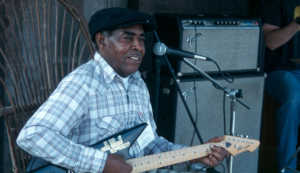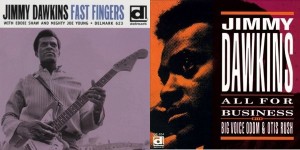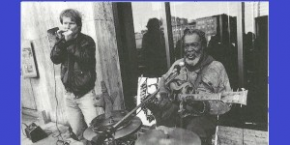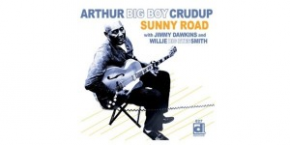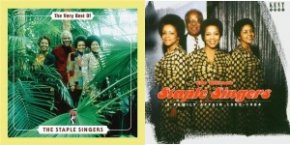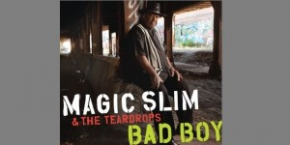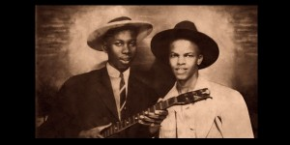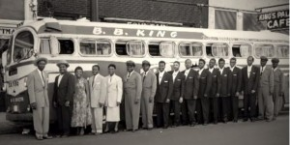Listen to this special Mississippi Blues Project session with David Bromberg here.
David Bromberg dropped by the studios at WXPN in Philadelphia in April to talk about, and play, Mississippi Blues. Bromberg cited the influences of players such as Muddy Waters and Howlin’ Wolf, though he noted that Big Bill Broonzy had been an initial influence. Broonzy used to say that he had come from Scott, Mississippi, but actually he was from Arkansas. Bromberg describes discovering Muddy Waters from his tribute album to Broonzy, which surprised Bromberg because the songs were performed so differently from the Broonzy originals by Muddy Waters.
We talked about Robert Johnson, with Bromberg noting that in his time Johnson was not well known. Producer John Hammond had sought Johnson for the famous “From Spirituals To Swing” concerts at Carnegie Hall in 1938 and 1939, but when looking for him in 1938, Hammond found that he had died (and Big Bill Broonzy was ultimately selected in his stead). Bromberg performed the Robert Johnson song “Kindhearted Woman Blues.”
We also talked about how he takes songs like “Kindhearted Woman Blues” and does them his own way, not trying to copy the originals. Bromberg remembered hearing a performer singing “Big Bill’s Blues,” and referring to himself in the song as “Bill.” Bromberg wondered why the performer didn’t use his own name in the places where Broonzy had used his name in the original. After all, the performer’s name wasn’t Bill Broonzy. For Bromberg, the trick is to own the song yourself, at least while you are playing it.
We reminisced about another influence, someone who was actually around in the New York City area from whom Bromberg learned a lot, Reverend Gary Davis. Davis was from South Carolina and is usually classified as an “Piedmont style” artist, but his influence on the folk and blues revival artists such as Bromberg, as well as Rory Block and many others, was tremendous.
I asked Bromberg who his favorite Mississippi artist was, expecting it would be Robert Johnson, but he named Skip James instead. We talked about Skip, how unusual it was for a Mississippi artist to be very talented on both guitar and piano, and how eerie and distinct Skip James’s sound was on both instruments. When I asked Bromberg if he could play a song by Skip James, he essentially said that it is still on the “to do” list for him to learn a Skip James song! We briefly mentioned another favorite artist of his, and mine, King Solomon Hill, who only made a few recordings, haunting blues pieces on slide guitar, often employing falsetto singing. Bromberg says he cannot play any of those pieces at this time. While King Solomon Hill is a fairly obscure figure at this point, he must have enjoyed some popularity with blues audiences during his life, because years later Big Joe Williams was telling interviewers that he was actually King Solomon Hill (not at all true! King Solomon Hill’s actual name was Joe Holmes.)
While Robert Johnson wasn’t actually popular during his lifetime, Leroy Carr, a pianist and singer who often recorded with Scrapper Blackwell on guitar, definitely was. Bromberg performed one of their songs, the “Midnight Hour Blues,” and in the middle embedded the well-loved guitar part from a piece called “Mississippi Blues” which was originally performed by William Brown in a field recording in 1942.
The mixing of songs works perfectly for David Bromberg. He likes to mix different styles and is not slavishly devoted to doing the exact-copy renditions of old recordings, as some blues players have been. The subject of blues singer Johnny Shines came up. Shines traveled with Robert Johnson for many years. He shared some memories of Johnson with Bromberg back in the day, noting that Johnson could pick up songs very quickly from the radio. Shines and Johnson might be talking, with a song on in the background, and subsequently Johnson would pick up his guitar and could play the song – – somehow he had learned it while having a conversation at the same time!
Johnny Shines was a truly powerful blues singer, and in 1974 Bromberg produced one of his albums. It was important to Bromberg not to try to cast Shines as someone straight out of the 1930s. “I didn’t put him on a bale of hay, in dungarees with a straw hat on,” notes Bromberg. The album has a fully contemporary feel to it, and we decided to play one song directly from it in this session, a song called “Mr. Cover Shaker.”
We talked about the old 78 RPM records, many of which were not yet reissued when Bromberg started listening to the blues. Fortunately, the father of one of his friends had a big 78 collection, and Bromberg got to listen to them. Another topic was Clarksdale, Mississippi and the surrounding area, from which so many great blues artists came from. Bromberg wondered if there was something in the water around there! Among the artists from the area was John Lee Hooker whose hypnotic one-chord pieces were very different from the sound of Robert Johnson, Muddy Waters, and such. Bromberg met Hooker in New York at folk clubs in Greenwich Village and used to perform some of the songs, though he said it is been a while and declined to do one at this point.
Instead, he decided to play a song by Big Bill Broonzy. The song he played is known by several titles. I have known it as the “Mule Ridin’ Blues,” though Bromberg remembers it being called the “Hey Bub Blues” on one album. It’s an example of Broonzy’s sense of humor.
We discussed the folk revival and how exciting it was to meet some of the original blues musicians in and around New York in the 1960s and 70s, as well as some of the other blues players in the revival. Artists such as Big Joe Williams, Lonnie Johnson, and Skip James, as well as Mississippi Fred McDowell, frequently played at The Gaslight, a fabled club in Greenwich Village where Bromberg spent time as the regular opening act. Bromberg notes the influence of Lonnie Johnson to B. B. King. Johnson’s distinct tone was the model for King’s sound, even though he played electric guitar and Johnson’s classic recordings had been on acoustic guitar.
Rory Block has told me how grateful she was, after being turned down by the Philadelphia Folk Festival one year, that Bromberg had invited her play on stage with him as a guest at the festival. When I mentioned that, Bromberg said he doesn’t actually remember it! Block, of course, will never forget it.
We also talked about the “hill country” blues styles for Mississippi, exemplified in recent years by R. L. Burnside and Junior Kimbrough among others. Bromberg dug a little deeper into that tradition, talking about the fife and drum traditions found in the hill country, and remembering players such as Sid Hemphill, noting that some of these traditions seem to come right from Africa.
Bromberg played the “Big Road Blues,” a song he learned from the recording by Tommy Johnson, who also gave us the “Canned Heat Blues.” The walking bass line on it is very engaging – and those strong bass lines have always appealed to Bromberg.
We ended our visit with some conversation about strumming (as opposed to picking) exemplified by Charley Patton, though Bromberg feels he isn’t really up to speed on the technique at this point. We also talked about the ups and downs of his own performing career. Bromberg stopped playing for two decades. He had suffered from burnout following relentless traveling and years on the road, and started studying the making, appraising, and selling of violins. He talked about the quality of instruments and whether the incredibly high-priced instruments we sometimes read about are really worth that much. He noted that the value is often more a result of how the player experiences the instrument than the listener. Today he has a store where he repairs and sells violins, and is one of the world’s leading expert on violins made in America, which have often been overlooked by violin aficionados. He plays gigs when he wants to, but will never again be a burned-out “road warrior” performer, choosing to make the experience of playing music as much fun as the music itself.
Listen to the session

